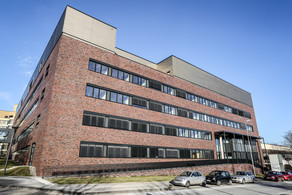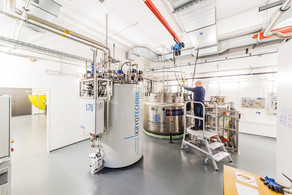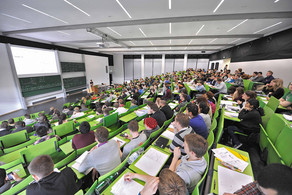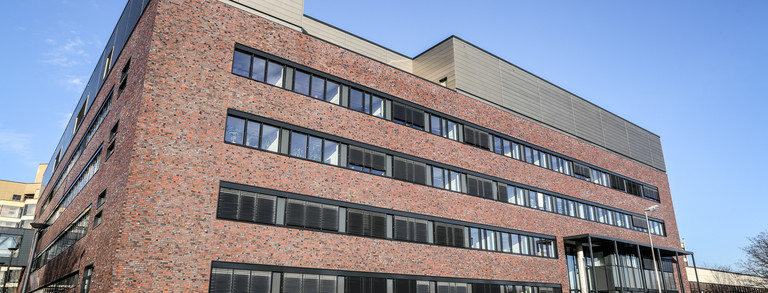Thesis defense of Evelin Lienau
- Defense
Routine dosimetry aims to estimate the radiation dose of occupationally exposed persons for a monitoring interval of one month. The Material Prüfungsamt NRW (MPA NRW) provides a thermoluminescence (TL) dosimeter based on LiF:Mg,Ti (TL-DOS). Thermal fading causes a time-dependent signal loss when using a TL dosimeter. This signal change is used to gain information about the irradiation event beyond the dose estimate, which can help to improve the radiation protection concept of occupationally exposed persons. In this work, multivariate analysis techniques for glow curve analysis using deep learning approaches are developed to estimate the irradiation day within a monitoring interval of 40 days with single-dose irradiation using a Cs-137 source with a prediction uncertainty of two days. To create a data basis for training the application of deep learning, over 10 000 measurements were performed in cooperation with the MPA NRW and the TL-DOS project. Furthermore, a technique to generate realistic glow curves based on generative adversarial networks (GANs) is presented, which makes it possible to expand the measured data set artificially and thus create a larger database for the deep learning approaches.









